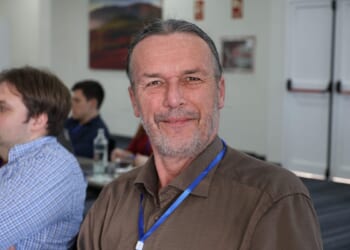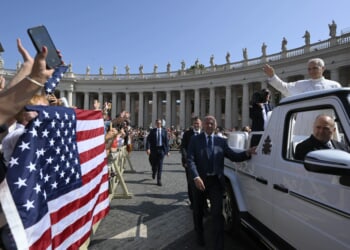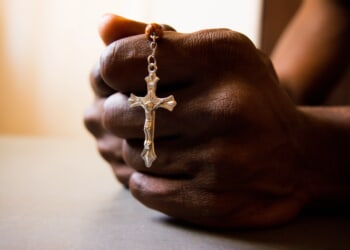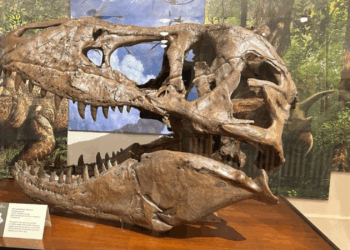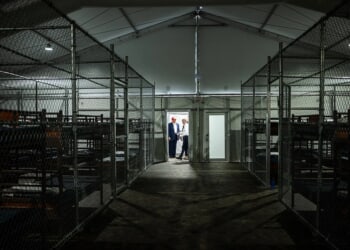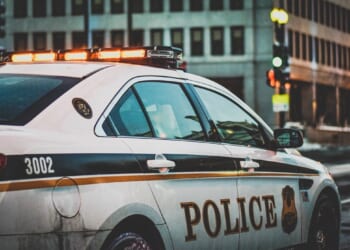Vatican City, Jul 4, 2025 /
05:00 am
Beneath a canopy of Roman pines, Americans in Rome celebrated the Fourth of July this year with something more than barbecue and fireworks: the historic election of the first pope born and raised in the United States.
“Let us celebrate the milestone of an American pope on the Fourth of July, in the spirit of friendship, freedom, and shared purpose,” said Laura Hochla, chargé d’affaires of the U.S. Embassy to the Holy See, addressing the crowd at Villa Richardson, the U.S. ambassador’s residence.
The embassy’s annual Independence Day celebration, held June 30, commemorated not only the 249th anniversary of the United States but also the 41st anniversary of formal diplomatic relations between Washington and the Holy See — ties that now find new resonance in the pontificate of Pope Leo XIV, a Chicago native.
Archbishop Paul Richard Gallagher, the Vatican secretary for relations with states, said the election of Pope Leo XIV brought the contribution of the U.S. to the Church “to another level” as he gave an overview of the history of U.S.-Vatican relations in his speech at the party.
“I have normally as an Englishman approached the celebration of the Fourth of July and American independence with a certain degree of liberty in humor rather than in independence,” Gallagher, a Liverpool native, said. “But now that we have an American pope, I have to recalculate my remarks.”
Tracing relations back to the earliest days of the republic, Gallagher noted that the Catholic Church’s presence in America began with humble missionaries and immigrants. “Catholics were sometimes viewed with suspicion in their adopted homeland. However, as their numbers grew, so did their contribution to American society,” he said.
“The first diplomatic contact [between the United States and the papacy] dates back to 1788, when Benjamin Franklin sent to Pope Pius VI a message from George Washington. In it he said that the newly independent state saw no need to be involved in the appointment of bishops, as the American Revolution brought not only freedom for the colonies but also religious liberty,” Gallagher recounted.
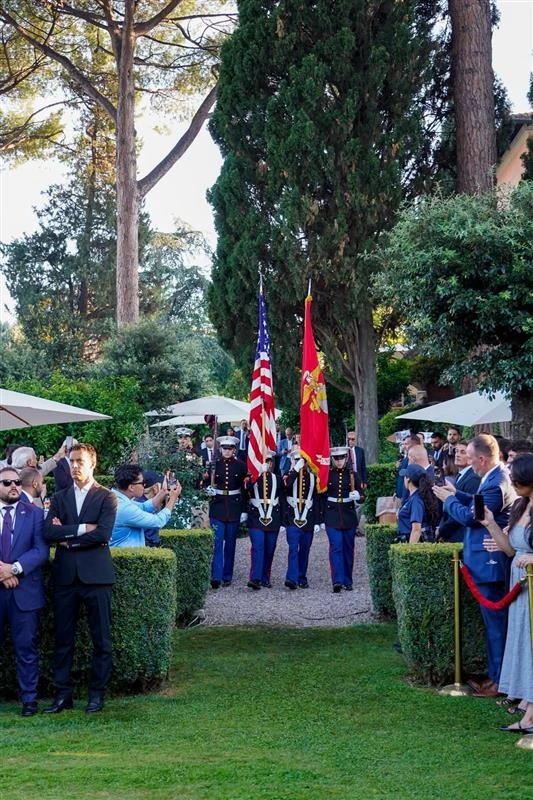
The United States maintained consular relations with the Papal States beginning in 1797 and diplomatic relations with the pope from 1848 to 1867, though not at an ambassadorial level.
Diplomatic ties lapsed in 1867 when Congress passed a ban on funding relations with the Holy See — a move fueled in part by anti-Catholic sentiment in the U.S. From then on, the Vatican and U.S. relied on personal envoys for over a century, including during World War II.
It wasn’t until 1984 that President Ronald Reagan and Pope John Paul II established full diplomatic ties.
Gallagher emphasized how far the American Catholic Church has come, citing the rise of Catholics to high office — from John F. Kennedy to the current vice president — and the growing intellectual contributions of U.S. theologians including Father John Courtney Murray, whose ideas on religious liberty shaped Vatican II.
The Vatican diplomat described the new pope’s diverse family tree as “quintessentially American.”
For many Americans gathered at Villa Richardson, the symbolism of Leo XIV’s election was deeply felt.
“The election of the first pope from the USA represents a coming of age for the American Catholic Church,” Susan Hanssen, a history professor at the embassy party, told CNA.
“A self-consciously immigrant Catholic community struggling with assimilation suddenly exploded with priestly vocations and prominent converts during the John Paul II revival. It was a fireworks display of confidence in the truth of the faith and its power to address the problems of modernity,” added Hanssen, who is currently teaching in the summer program for the University of Dallas, a Catholic university that has a Rome campus near Castel Gandolfo, the site of the pope’s summer residence.
(Story continues below)
Subscribe to our daily newsletter
“Pope Leo, with his embrace of Leo XIII as his patron, represents this moment of maturity,” she said.
Hamburgers, hot dogs, and a Marine color guard added American flavor to the evening. Despite the celebration, the embassy remains without a Senate-confirmed ambassador to the Holy See. President Donald Trump’s nominee, Brian Burch, was approved by the Senate Foreign Relations Committee in May but faces a procedural roadblock in the full Senate after Democrats placed a hold on several State Department nominees over concerns about foreign aid funding.
Until the Senate acts, the embassy continues under the leadership of Hochla, who took over as chargé d’affaires in July 2024.







